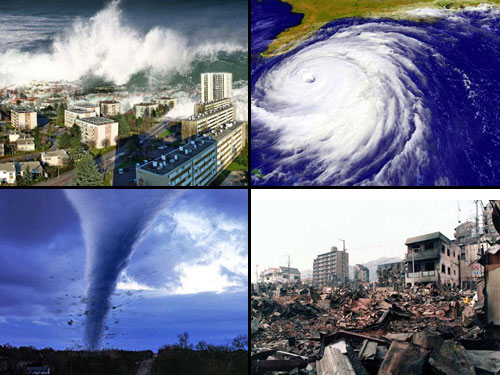Theo dòng sự kiện, “Nature” – Thiên nhiên và “Weather” – Thời tiết, “Natural disasters” luôn được quan tâm hơn bao giờ hết vì tính thời sự của nó. Chủ đề này chắc là đã rất quen thuộc rồi, tuy nhiên thì hãy thử “nghía” qua những bí kíp từ vựng IELTS này xem, có thể bạn sẽ tìm được một luồng gió mới cho chủ đề này đấy!
I. WEATHER (Thời tiết)
Part 1
What is your favorite season? (Mùa yêu thích của bạn là gì?)
| Sample answer | Vocabulary | |
| (Answer) Fall is absolutely my most favorite season. (Reason) The cool weather makes me feel so comfortable because humidity is low. (Example) I love the feeling of going for a walk in Hoan Kiem Lake pedestrian zone while enjoying the breeze. It’s so fantastic! | Breeze (n) | Làn gió nhẹ |
| Humidity (n) | Độ ẩm | |
Part 2
Describe a type of weather that you like the most. (Mô tả kiểu thời tiết bạn thích nhất)
| Sample answer | Vocabulary | |
| (Answer) Well, people may think that I am weird, but honestly, my most favorite type of weather that I like most is snowy weather. I was born in Vietnam, snow is very scarce and it can only be seen in one or two mountainous provinces in the Northern part.
(Reason) I like it because I want to be immersed in beautiful white snowflakes and have some fun with them. (Example) Just the thought of building a snowman or throwing snow at my friends makes me happy as a clam. I often wish I could go to some Western countries such as America, Sweden or England to enjoy the freezing cold weather as well as admiring the snow falling outside – one of the most interesting natural phenomena. (Reason) Additionally, I like winter because this is the time that I can wear my favorite clothes, which are warm clothes such as sweater, thick coat or boots. (Example) Although I am aware that it is not eassy to live in the weather when temperature is low, sometimes I tremble with cold but I really want to enjoy that vibe. Now many people know that due to global warming, the temperature in some countries has begun to rise, which leads to a reduction in snow. I have to rush so that I can enjoy true snowy weather! |
Scarce (adj) | Hiếm |
| Snowflakes (n) | Bông tuyết | |
| Snowman (n) | Người tuyết | |
| Makes me happy as a clam (v) | Làm tôi rất hạnh phúc | |
| Freezing cold weather (n) | Thời tiết rất lạnh | |
| Natural phenomena (n) | Hiện tượng tự nhiên | |
| Tremble with cold (v) | Run lên vì lạnh | |
| Vibe (n) | Không khí | |
Part 3
Do you think that weather affects our feelings? (Bạn có nghĩ rằng thời tiết ảnh hưởng đến cảm xúc của chúng ta không?)
| Sample answer | Vocabulary | |
| (Answer) One hundred percent yes. (Example) If the weather is fine, humans can have the mood or motivation to do certain things. When the weather is cool or sunny, people may tend to feel happier; however, if really bad weather conditions happen, for instance scorching heat or torrential rain, it is easy for people to have their mood down. The appearance of snow may make people excited but thick layers of snow with bitterly cold weather can cause depression for people. | Scorching heat (n) | Nắng nóng gay gắt |
| Torrential rain (n) | Mưa rất to | |
| Bitterly cold weather (n) | Trời lạnh thấu xương | |
NOTICE
| Glossary Box | ||
| Breeze (n) | /briːz/ | Làn gió nhẹ |
| Humidity (n) | /hjuːˈmɪdəti/ | Độ ẩm |
| Scarce (adj) | /skeəs/ | Hiếm |
| Snowflake (n) | /ˈsnəʊfleɪk/ | Bông tuyết |
| Snowman (n) | /ˈsnəʊmæn/ | Người tuyết |
| Make (Sb) happy as a clam (v) | /ˈhæpi/ /əz//ə//klæm/ | Làm ai đó rất hạnh phúc |
| Freezing cold weather (n) | /ˈfriːzɪŋ/ /kəʊld//ˈweðə(r)/ | Thời tiết rất lạnh |
| Natural phenomenon (n) | /ˈnætʃrəl//fəˈnɒmɪnən/ | Hiện tượng tự nhiên
|
| Tremble with cold (v) | /ˈtrembl//wɪð//kəʊld/ | Run lên vì lạnh |
| Vibe (n) | /vaɪbz/ | Không khí |
| Scorching heat (n) | /ˈskɔːtʃɪŋ//hiːt/ | Nắng nóng gay gắt |
| Torrential rain (n) | /təˈrenʃl//reɪn/ | Mưa rất to |
| Bitterly cold weather (n) | /ˈbɪtəli//kəʊld//ˈweðə(r)/ | Trời lạnh thấu xương |
II. NATURAL DISASTERS (Thảm họa thiên nhiên)
Part 1
Are you afraid of natural disasters? (Bạn có sợ các thảm họa thiên nhiên không?)
| Sample answer | Vocabulary | |
| (Answer) Wow, of course. (Example) Not only me but also many people on Earth have a fear for natural calamities. They are extreme weather conditions that can cause a lot of damage to people and property in a large scale. | Natural calamities (n) | Thiên tai |
| Extreme weather conditions (n) | Điều kiện thời tiết cực đoan | |
| Property (n) | Tài sản | |
Part 2
Describe a natural disaster/an extreme weather condition that you will never forget. (Mô tả một thảm họa thiên nhiên hoặc một điều kiện thời tiết khắc nghiệt mà bạn không bao giờ quên)
| Sample answer | Vocabulary | |
| (Answer) Well, I would like to talk about the “historical flood” that happened in Hanoi a decade ago, 2008. This must be the year that Hanoians can never forget.
(Reason) It is memorable because the rain was so heavy and lasted for many days consecutively that inundated many streets of Hanoi. (Example) The rain was considered heaviest in the last 100 years, which caused people to suffer from a lot of damage. Precipitation reached a record high and almost all activities were paused to ensure the safety of both people and property. According to statistics, many families even suffered from inundation as high level of water flew into their houses. Offices or schools had to make emergency announcement to let their employees and students be at home to avoid any potential accidents that may caused by the pouring rain. Life then had a lot of disturbance and people had to wait until it stopped raining. The rain triggered inconvenience for people in different fields as high death toll was recorded, traffic was in no order or people stood a high chance of dangerous epidemics. Luckily, after a few days, life began to come back to the way it was thanks to concerted effort of both local authority and many people of the city. |
Inundated (adj) | Bị ngập lụt |
| Precipitation (n) | Lượng mưa | |
| Record high (adj) | Cao kỷ lục | |
| Statistics (n) | Thống kê | |
| Emergency announcement
(n) |
Thông báo khẩn cấp | |
| Pouring rain (n) | Mưa xối xả | |
| Disturbance (n) | Xáo trộn, phiền toái | |
| Death toll (n) | Tỷ lệ tử vong | |
| Dangerous epidemics (n) | Dịch bệnh nguy hiểm | |
| Concerted effort (n) | Nỗ lực chung | |
Part 3
Why the world has to suffer from natural disasters more than ever before? (Tại sao thế giới đang ngày càng phải chịu nhiều những thiên tai hơn bao giờ hết?)
| Sample answer | Vocabulary | |
| (Answer) Well, I think this is a worldwide issue that needs to be solved before it is too late. (Reason) Obviously, there is global warming that is resulted from human activities such as deforestation or over-exploitation of natural resources. Moreover, the exhaust fumes from vehicles or factories are the main reason that causes the Ozone depletion. That is why more natural disasters are happening. (Example) Personally I think both government and citizens all over the world should act now before humankind has to suffer from more serious disasters in the future. | Global warming (n) | Sự nóng lên toàn cầu |
| Deforestation (n) | Phá rừng | |
| Ozone depletion (n) | Sự suy giảm tầng Ô-zôn | |
NOTICE
| Glossary Box | ||
| Natural calamities (n) | /ˈnætʃrəl/ /kəˈlæmətiiz/ | Thiên tai |
| Extreme weather conditions (n) | /ɪkˈstriːm//ˈweðə(r)//kənˈdɪʃnz/ | Điều kiện thời tiết cực đoan |
| Property (n) | /ˈprɒpəti/ | Tài sản |
| Inundated (adj) | /ˈɪnʌndeɪt/ | Bị ngập lụt |
| Precipitation (n) | /prɪˌsɪpɪˈteɪʃn/ | Lượng mưa |
| Record high (adj) | /ˈrekɔːd/ /haɪ/ | Cao kỷ lục |
| Statistics (n) | /stəˈtɪstɪks/ | Thống kê |
| Emergency announcement
(n) |
/ɪˈmɜːdʒənsi//əˈnaʊnsmənt/ | Thông báo khẩn cấp |
| Pouring rain (n) | /pɔː(r)/ /reɪn/ | Mưa xối xả |
| Disturbance (n) | /dɪˈstɜːbəns/ | Xáo trộn, phiền toái |
| Death toll (n) | /deθ//təʊl/ | Tỷ lệ tử vong |
| Dangerous epidemics (n) | /ˈdeɪndʒərəs//ˌepɪˈdemɪks/ | Dịch bệnh nguy hiểm |
| Concerted effort (n) | /kənˈsɜːtɪd//ˈefət/ | Nỗ lực chung |
| Global warming (n) | /ˈɡləʊbl//ˈwɔːmɪŋ/ | Sự nóng lên toàn cầu |
| Deforestation (n) | /ˌdiːˌfɒrɪˈsteɪʃn/ | Phá rừng |
| Ozone depletion (n) | /ˈəʊzəʊn//dɪˈpliːʃn/ | Sự suy giảm tầng Ô-zôn |
Một số từ vựng khác đặc biệt nâng cao:
(C2) Aftershock /ˈæftərʃɑːk/ (n): Dư chấn.
Ex: The area suffered a series of aftershocks measuring up to 6.3 on the Richter scale.
(Khu vực đã hứng chịu một loạt các dư chấn được đo đạc lên đến 6.3 độ Richter)
(B2) Solar storm /ˈsəʊlər stɔːrm/ (n): Bão mặt trời.
Ex: When a solar storm strikes the Earth, it often produces a dazzling “northern lights” display in parts of the atmosphere that can be seen in areas close to the Arctic Circle.
(Khi bão mặt trời đánh vào trái đất, nó thường tạo ra trong khí quyển hiện tượng đèn phương Bắc hay Cực quang chói lọi có thể nhìn thấy được ở gần vòng cực Bắc)
(C1) Tidal wave /ˈtaɪdl weɪv/ (n): Sóng cồn, sóng triều
Ex: A tidal wave is a regularly recurring shallow water wave caused by effects of the gravitational interactions between the Sun, Moon, and Earth on the ocean.
(Sóng triều là sóng cao theo chu kỳ, thường xuyên ở vùng nước nong được gây ra bởi các tương tác trọng lực giữa mặt trời, mặt trăng, và trái đất)
(B2)Tsunami /tsuːˈnɑːmi/ (n): Sóng thần
Ex: A tsunami is an ocean wave triggered by large earthquakes that occur near or under the ocean, volcanic eruptions, submarine landslides, or by onshore landslides in which large volumes of debris fall into the water.
(Sóng thần là một sóng đại dương được kích hoạt/ gây ra bởi động đất lớn gần hoặc bên dưới đại dương, phun trào của núi lửa, lở đất dưới đại lương hoặc lở đất trên bờ với một lượng lớn các mảnh vỡ rơi xuống biển)
(B1) Earthquake /ˈɜːrθkweɪk/ (n): Động đất.
Ex: An earthquake (also known as a quake, tremor or tremblor) is the shaking of the surface of the Earth resulting from a sudden release of energy in the Earth’s lithosphere that creates seismic waves.
(Động đất (còn được gọi là động đất, chấn động hoặc rung chuyển) là sự rung chuyển của bề mặt Trái đất do sự giải phóng năng lượng đột ngột trong thạch quyển của Trái đất tạo ra sóng địa chấn)
(B2) Volcanic eruption /vɑːlˈkænɪk ɪˈrʌpʃn/(n): sự phun trào núi lửa.
Ex: Volcanic eruptions happen when lava and gas are discharged from a volcanic vent.
(Núi lửa phun trào xảy ra khi dung nham và khí được xả ra từ miệng núi lửa.)
(B1) Flood /flʌd/ (n): Lũ lụt.
Ex: A flood is an overflow of water that submerges land that is usually dry.
(Lũ lụt là một một dòng nước tràn vào và làm ngập một vùng thường xuyên khô)
(B2) Drought /draʊt/ (n): Hạn hán.
Ex: A drought is an event of prolonged shortages in the water supply, whether atmospheric, surface water or groundwater.
(Hạn hán là hiện tượng thiếu hụt nguồn cung cấp nước kéo dài, cho dù là nước trong khí quyển, nước mặt hay nước ngầm.)
(B2) Famine /ˈfæmɪn/ (n): Nạn đói.
Ex: A famine is a widespread scarcity of food, caused by several factors including war, inflation, crop failure, population imbalance, or government policies.
(Nạn đói là sự khan hiếm, thiếu thốn thức ăn trên diện rộng, được gây ra bởi một số tác nhân như chiến tranh, lạm phát, mất mùa, mất cân bằng dân số, hay chính sách của nhà nước)
(B2) Avalanche /ˈævəlæntʃ/ (n): Tuyết lở. (a.k.a Snowslide)
Ex: Avalanches can be set off spontaneously, by such factors as increased precipitation or snowpack weakening, or by external means such as humans, animals, and earthquakes.
(Tuyết lở có thể xảy ra một cách tự nhiên, do các yếu tố như lượng mưa tuyết tăng lên hoặc băng tuyết suy yếu, hoặc do các phương tiện bên ngoài như con người, động vật và động đất)
(B2) Blizzard /ˈblɪzərd/(n): Bão tuyết.
Ex: A blizzard is a severe snowstorm characterized by strong sustained winds of at least 56 km/h and lasting for a prolonged period of time.
(Bão tuyết là một trận mưa tuyết nghiêm trọng có đặc điểm là gió mạnh duy trì ở mức ít nhất 56 km/h và kéo dài trong một khoảng thời gian)
(B1) Tornado /tɔːrˈneɪdəʊ/ (n): Lốc xoáy.
Ex: Tornado is a violently rotating column of air touching the ground, usually attached to the base of a thunderstorm.
(Lốc xoáy là một cột không khí quay dữ dội chạm đất, thường đi kèm với một cơn giông)
(C1) Wildfire /ˈwaɪldfaɪər/ / Forest fire (n): Cháy rừng.
Ex: A wildfire, bushfire, wildland fire or rural fire is an unplanned, unwanted, uncontrolled fire in an area of combustible vegetation.
(Cháy rừng là đám cháy không được báo trước, không mong muốn, không kiểm soát được trong một khu vực có thảm thực vật dễ cháy)
(B1) Hurricane /ˈhɜːrəkeɪn/ (n): Bão lớn, siêu bão
Ex: Hurricane is a violent storm with very strong winds, especially in the western Atlantic Ocean
(Siêu bão là một cơn bão dữ dội với sức gió rất mạnh, đặc biệt xảy ra ở phía tây Đại Tây Dương)
(C1) Devastate /ˈdevəsteɪt/ (v): Phá hoại, tàn phá
Ex: The 8-richter scale earthquake nearly devastated half of the city and thousands of people were killed because of buildings collapse.
(Trận động đất lớn 8 độ richter đã gần như phá hủy một nửa thành phố và có hàng ngàn thương vong do nhiều tòa nhà bị sụp đổ.
(C1) Evacuation /ɪˌvækjuˈeɪʃn/(n): sự sơ tán, tản cư
Ex: Officials ordered the evacuation of the Florida Keys as the tropical storm approached.
(Các quan chức phát lệnh di tản khỏi quần đảo Florida Keys khi mà cơn bão nhiệt đới đến gần)
Catastrophic ˌkætəˈstrɑːfɪk/ (adj): thảm khốc
Ex: A catastrophic wildfire has destroyed the habitat of millions of animals in Australia.
(Một trận cháy rừng thảm khốc đã phá hủy môi trường sống của hàng triệu loài động vật tại Úc)
Trên đây là bài mẫu và từ vựng theo từng Part Speaking thuộc topic Nature ( weather & natural disasters). Các bạn tự ôn luyện và nâng cao kỹ năng nhé! Và đừng quên theo dõi thư viện của IELTS Lingo để học thêm nhiều bài học bổ ích nhé !!!
(Nguồn: IELTS fighter)
#ieltsforbusypeople #lingoconnector #luyện_thi_ielts #ieltsgeneral #ieltslingo #anhngulingo

























